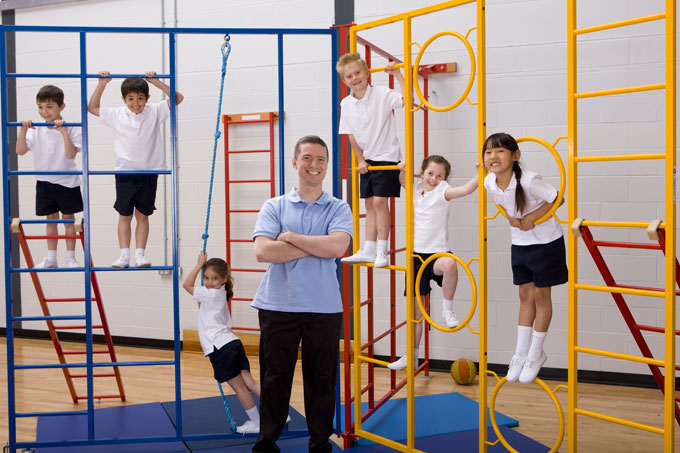Dr Kristy Howells looks at how daily physical activity in schools can help support children both physical and mentally to maintain good health.
Sport, physical activity, physical development and physical education are wonderful places within the school setting to help children find their inner brave.
These movement opportunities can support children move from a zone they are comfortable within, to be stretched and challenged to then be taken out of their comfort zone; this could be through new sensory opportunities, through to developing and overcoming fear of heights. It is through teaching such as this in a positive and enthusiastic way that you as a teacher can help capture the children’s imagination, engage their interest and give them the confidence and reassurance to step out of their comfort zone.
Movement is by its very nature a potentially hazardous experience, yet it can be exciting, challenging, and exhilarating. Movement can help children develop not just physically but also cognitively through problem solving and emotionally through social connectedness when working with others. Children need to be able to experience a variety of movement opportunities every day, especially within school settings, not only to support their physical wellbeing but also to help support their emotional health.
Children naturally want and need to take risks. At the Faculty of Education, we support our student primary education teachers and early years practitioners to develop children’s inner brave through planning for risks, such as developing risks in decision making during game play. For example, one of the most nail biting sports currently shown on tv is netball and when encouraging teachers to inspire children to be the next Natalie Haythornthwaite we explain that a brave pass poses a ‘risk’ as it gives the defenders more time and space to intercept the ball and move into a good strong position heading to the goal. Yet, if the risk pays off, then the team is in a much stronger position to be successful with goal shooting opportunities.
The most recent report from the All Party Parliamentary Fit and Healthy Childhood Group (2019) identifies the importance of green spaces both for mental health and for helping children learn to manage risk, develop resilience and become braver in their movements and calls for more green spaces both within our schools and our communities.
The report also highlights that movement opportunities outside can help children cope with uncertainty and provide challenges that can help them become both more confident and competent in their movements. Play Scotland’s (2019) position paper reaffirms a child’s right to daily play recognised by the UN Convention on the rights of the child, and states that through play, physical movements can boost resilience and the child’s ability to handle stress, challenges and setbacks and that these skills can be developed through daily playful opportunities that occur within the home, community and school settings.
In response to Children’s Mental Health Week 2020, we recommend children have as many daily movement opportunities as possible to find their ‘inner brave’ as the evidence indicates play, physical activity, physical development, physical education and sport daily can help support children both physical and mentally to maintain good health.
Dr Kristy Howells is Reader and Director of Physical Education and Sport Pedagogy in the Faculty of Education.
 Expert comment
Expert comment Jeanette Earl
Jeanette Earl 3375
3375


